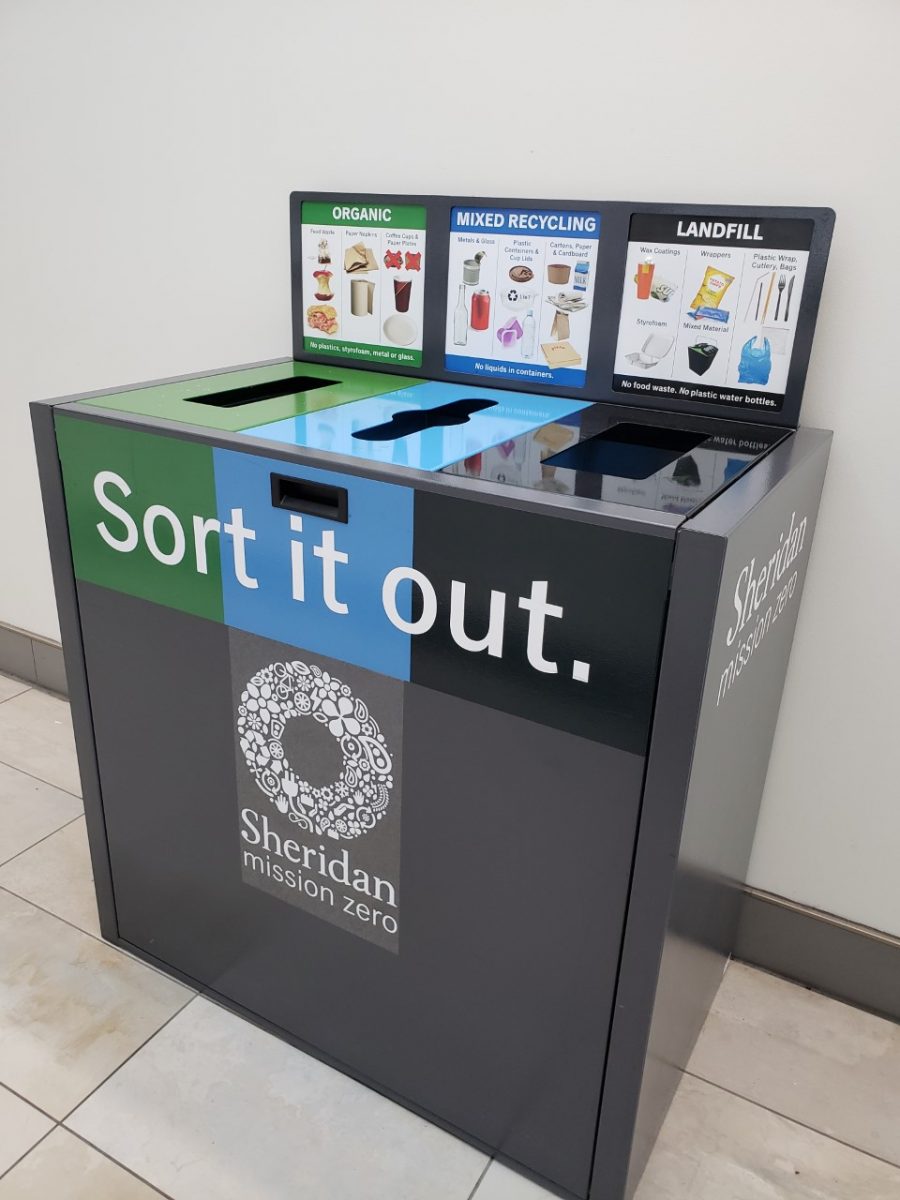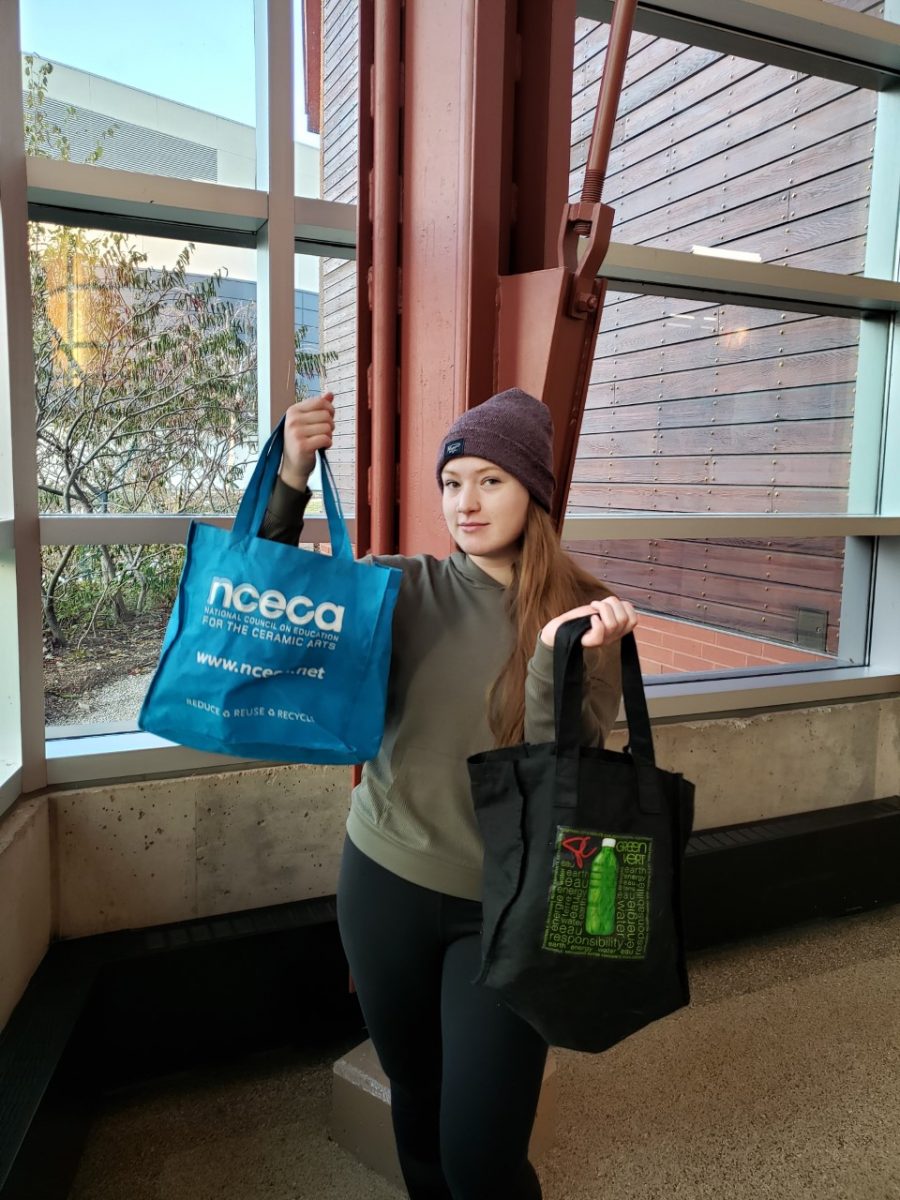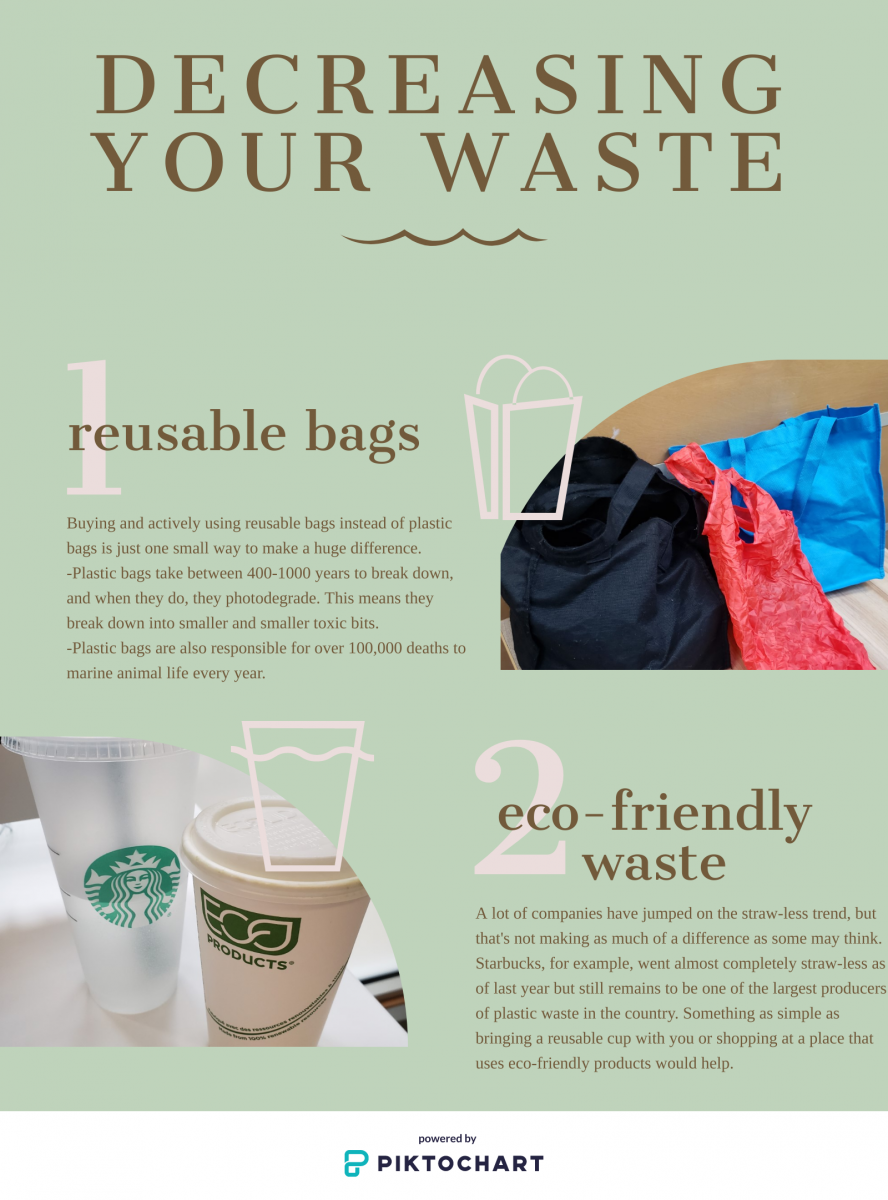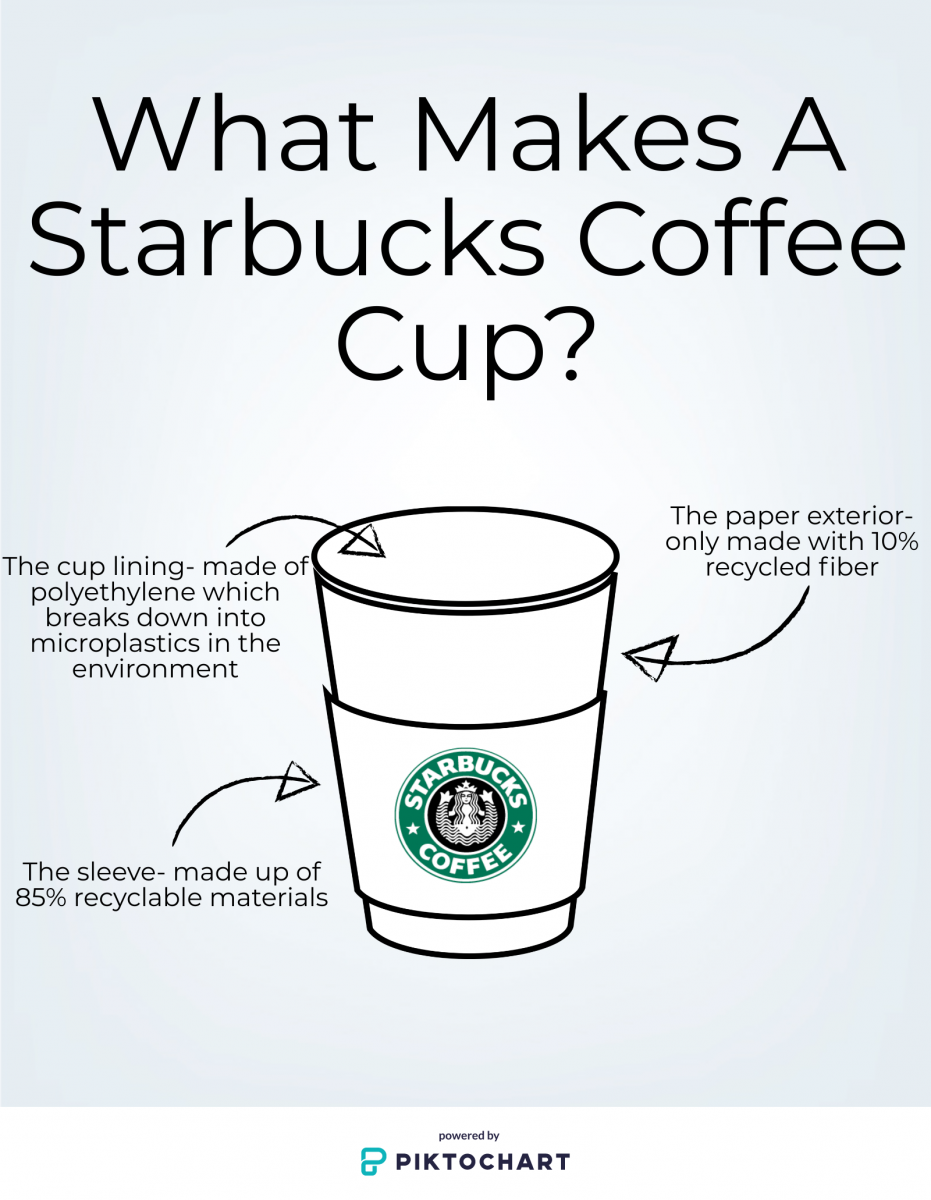Climate change is a worldwide crisis, but there are things you can do to make a difference.
According to the Government of Canada, forestry, agriculture and waste make up for 13% of our greenhouse gas emissions. Canadians disposed of 25 million metric tons of waste in 2016, and Ontario alone disposed of 9.5 million metric tons. This means that on average, each person in Ontario produced 670 kg of waste in that year and 1.8 kg of waste a day. With this in mind, reducing the amount of waste Canadians produce can be one of the ways we can combat climate change and reduce greenhouse gas emissions.
One of the ways that Sheridan College has been making a difference is by introducing the Zero Waste Sheridan plan which aims to make Sheridan a zero-waste campus by 2030. So far, the team at Mission Zero Sheridan has reduced the amount of waste sent to landfills in 2018 by 44% compared to 2014. They also reduced the total amount of waste by 17% in the same period of time.
“Mission Zero has accomplished this through collaborating with many different people in order to successfully implement the waste bin program– this includes facilities staff, cleaning staff, and waste management,” Alison Feist, the coordinator for Mission Zero, said.

These waste bins only work if students use them properly. This is especially important for Mission Zero because of their goal of getting Sheridan to be a zero-waste campus by 2030. “We encourage everyone to learn about Mission Zero so we can achieve this together. The first step to this is ensuring that everyone is correctly sorting their waste, and making conscious efforts to reduce the amount of waste created in simple ways,” Feist said.
It’s not just about sorting out your waste, “Students can be more conscious by making small changes in their everyday habits. For example, bringing a reusable coffee mug, or reusable cutlery at lunch time and help in reducing the amount of coffee cups and plastic cutlery that is thrown away,” Feist said. “They can also volunteer with us to learn more about waste management and ways that they can reduce their waste.”

Emma Kip, a second year Bachelor of Craft and Design student said that she believes it’s actually very easy to reduce your waste. “There’s literally so many ways you can reduce your waste, like, bring a reusable cup, don’t buy plastic bags at the grocery store. It’s so easy,” Kip said.

“Reusable bags only cost a couple of dollars, what’s a couple of dollars when you use them every week for groceries and they last for years,” Kip said. Compared to single-use plastic bags, reusable bags are a great option when it comes to making a difference.

Companies like Starbucks have made statements about being more sustainable. However, some think this may just be a way for those companies to receive more praise than criticism. “I think Starbucks going straw-less is just a way for them to look like they’re making a difference and make them look like they care but they still contribute so much to our plastic pollution that it’s like it doesn’t even matter,” Kip said. “I just think if companies actually cared, they would do something because they care and not because of a trend.”

Using reusable bags and cups are just a few economical and long-lasting ways you can help you reduce your amount of waste and combat climate change.
